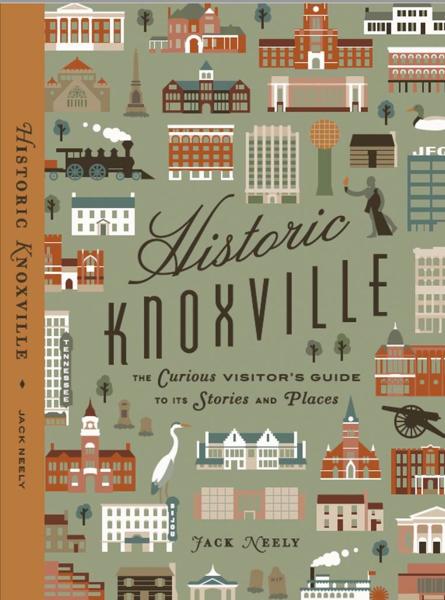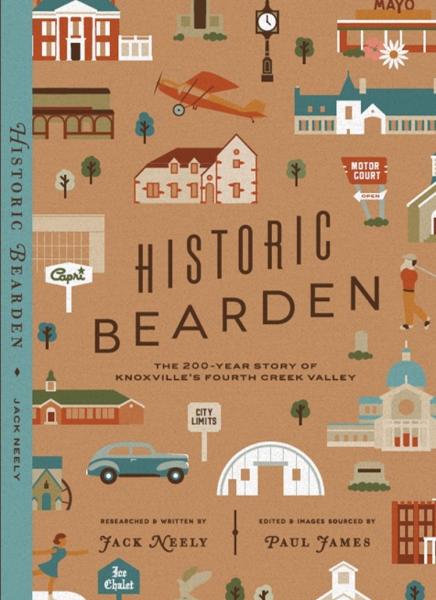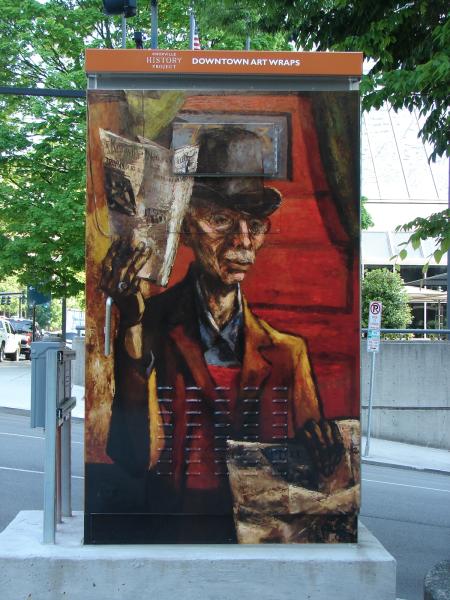Editor’s note: If you’re new around here or have been reading our blog for quite some time, you may not be aware of all that our friends at the Knoxville History Project do in and for our community and visitors. Read on to learn more about the projects they’re involved in and programming they offer!
To some folks, history may always seem like a dreary subject from high school. But it’s also the main ingredient that makes travel fascinating. Pick up any travel guide to Paris or Rome—or even Las Vegas—and you’ll find that the history is what makes you want to keep reading.
And like those more famous cities, Knoxville is interesting mainly because of its history. This city’s story is different from that of any other city in the world, but is also reflects and connects to almost all of American history. And it’s what drives much of what makes Knoxville Knoxville, even in 2021.
That’s what we explore at the Knoxville History Project, a small but nimble donor-supported nonprofit devoted to the 230-year history and culture of the city of Knoxville.
We research formal historical reports for various clients and purposes, but most of what we produce is of interest to the casual traveler. From the dramatic pioneer days that culminated in a convention that founded the 16th state; to the Civil War that divided the city perhaps like no other; to the bold and devoted cadre of conservationists who set out to found a new National Park in the Smokies; to an astonishingly diverse array of literary figures—from English-born Frances Hodgson Burnett to Alex Haley to Cormac McCarthy and renowned poet Nikki Giovanni; to the urgently relevant but sometimes-wacky 1982 World’s Fair—we attempt the impossible by trying to tell Knoxville’s whole complicated story.
 |
 |
 |
Our flagship book, Historic Knoxville: The Curious Visitors’ Guide, is despite its title, a colorful, entertaining, and pretty thorough guide to Knoxville in 2021. Most of Knoxville’s modern attractions are also historic sites: from Neyland Stadium (celebrating 100 years in 2021) to Ijams Nature Center and surrounding quarries to Market Square. These are all what they are because of dramatic or unique things that unusual and creative people did here a long time ago. Historic Knoxville, which earned a 2019 commendation from the East Tennessee Historical Society, explores as much of that as we could fit into a handy-sized book. It’s used by several leadership groups to orient newcomers to town.
Tourism itself often becomes relevant history, too, as our more recent book, Historic Bearden, about a disarmingly complex suburban area on the west side of town, proves. Among Bearden’s many stories is the development of automobile tourism as it evolved from “tourist camps” of the 1920s—in which traveling families were expected to supply their own tents—to the swimming-pool and color-TV luxury of the 1960s and later.
We publish a lot, but in the downtown area you may also notice our Art Wraps, a series of high-quality prints on otherwise unsightly aluminum traffic boxes. Each has a piece of colorful artwork by a Knoxville artist, with a side panel telling the story of the artist, from impressionist Catherine Wiley to abstract expressionist Beauford Delaney. We have about 30 of them up now in public places, and they’ve been a big hit.

We also lead personal tours of the city, its downtown, its waterfront, its most interesting graveyards, its university, often in cooperation with other organizations, like Visit Knoxville, UT Noncredit, and most recently, the Aslan Foundation, for which we’ve been giving free monthly tours of the mysterious Eugenia Williams mansion in West Knoxville. Our partner, Knoxville Walking Tours, tells many of our best stories, from the gunfights of the saloon era to dramatic moments in the Women’s Suffrage movement.
Partly of necessity during the pandemic, we began experimenting with multiple other higher-tech ways to serve the curious public virtually—with a series of Knoxville Driving Tours (free to download from our website, they’ve been used by thousands) and free Zoom presentations on subjects ranging from UT football to the civil rights movement to riverboat tragedies. (We’ve been doing them weekly for a year, but will probably cut back a bit this summer; check our website under “Events.”)
Most recently, we’ve launched a VoiceMap app, the first time Knoxville has been a part of that popular international tourism service. Our offering is an audio walking tour called “Legends of Country Music”—to show you where Roy Acuff, Chet Atkins, the Everly Brothers, Dolly Parton, and many others got their start—and where Hank Williams saw his last conscious hours—all in downtown Knoxville.
And to see our best stories and pictures, view our website. It’ll take more than a weekend to read or see everything there. And check back. It’s different every month.
Knoxville’s story is often surprising, sometimes inspiring, always fascinating, and we do our best to tell all of it.


